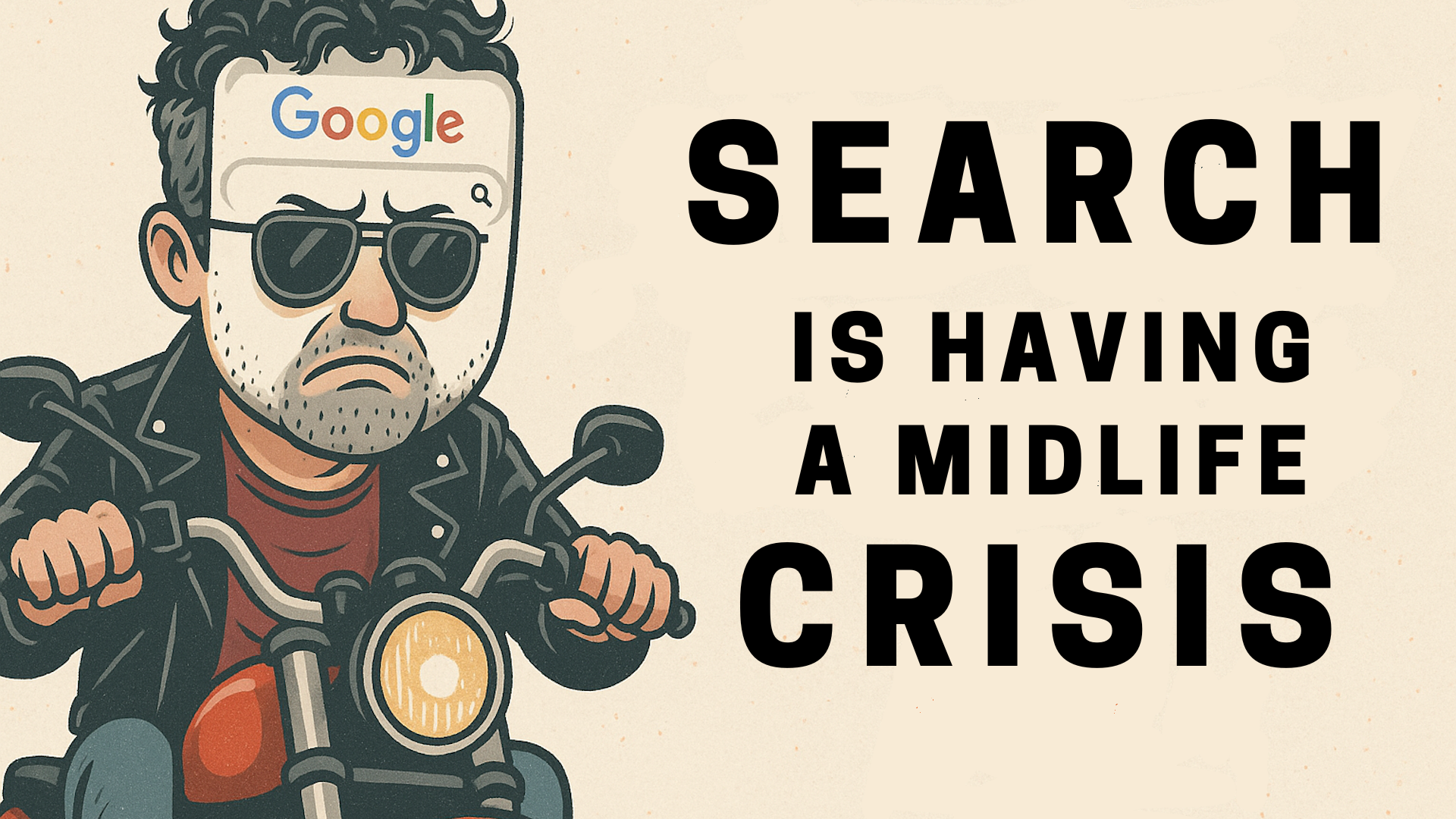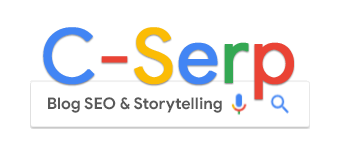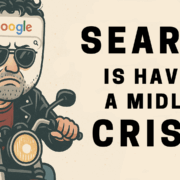Search is having a midlife crisis. And it’s glorious.

If you want the lowdown on Google’s I/O hoedown, look no further than… 2013. Or maybe 2014. 2016 works too. Honestly, take your pick because it barely matters.
Most of the coverage I’ve seen this year reads like AI-generated summaries written by folks with more letters after their names than a prescription bottle. Bless their hearts.
But remember—Google’s founders didn’t show up with alphabet soup credentials. They showed up to solve a problem. A big, fascinating one that demanded thinking, tinkering, troubleshooting, and a lot of stops and starts. It wasn’t about polish; it was about the ridiculous drive to solve a problem. And have your own personal 767, but let’s not get off topic here.
My own version of “looking back” usually involves regretting not taking that agency job at Google back when stock options were basically party favors. If I had, I’d be three Mai Tais deep on my own private island instead of writing articles to stay relevant. But here we are.
And here’s where it gets interesting.
A lot of people are wringing their hands over how AI is going to disintermediate the paid search model.
That’s cute. But this isn’t single auction bidding anymore.
We live in a layered, behavioral, socially informed, context-rich world where performance shouldn’t be bought and paid for; it should be earned. That’s where the multi-punctuation folks and I intersect.
And too many people out there think they invented the wheel but can’t change a tire.
That’s especially true inside the SEM world.
SEM – as in the combined disciplines of SEO and paid search. (Or Search Engine Advertising, also known as SEA. Sorry, folks. I’ll die on that hill and keep swimming upstream while others are busy rewriting acronyms.)
And while we’re at it, let’s talk about the current split. Half the industry is yelling that AI has changed everything, burned the house down, and we’re all just squatting in the ruins. The other half is clinging to the belief that nothing’s really changed.
New search marketing is still just a few new tools bolted onto the same old playbook. It’s playing out like America’s divisive political climate. We should try harder to get along, but again, let’s not get off topic.
Meanwhile, the guy who just needs new pants is watching another guy with two mismatched monitors and an Imperial Star Destroyer desktop theme break down a pair of pants better than any brand ever has.
It was better because it was genuine and relatable. I saw myself.
Humans who buy pants online aren’t living extreme close-up explainer flashing text video lives, but people, please, try and focus on the topic at hand.
That’s the moment. I searched for those pants and because I believed “ObinWand2000,” I bought a pair. Now I have seven. One for each day of the week in different colors, because having seven of the same color would be a little crazy.
These pants are the best dang go anywhere, do anything, fluid resistant, no iron wash in the sink, hang dry ones I’ve ever seen or heard about.
A brand I trust with big seven-figure budgets and the top-ranked content wasn’t from an influencer or a sponsored post. It was from a guy with fewer than 5,000 followers who just happened to deliver the most honest, relevant, and useful review out there.
That’s the shift.
What AI is doing in its current, glitchy, overly confident state is reviving the spirit of early search. Not the cluttered, over-optimized, pay-to-play version we’ve been stuck in.
The original idea: that the most valuable voice wins. Not the loudest. Not the richest. Not the most frequent.
And whether by design, or algorithmic accident, that’s the kind of search revival I can get behind.
So, before we call this the end of search as we know it, maybe it’s worth asking: what if it’s just the beginning of search as it should have been?
Less noise. More value. And finally – mercifully – fewer people trying to sell us the wheel when they still can’t fix the flat.


